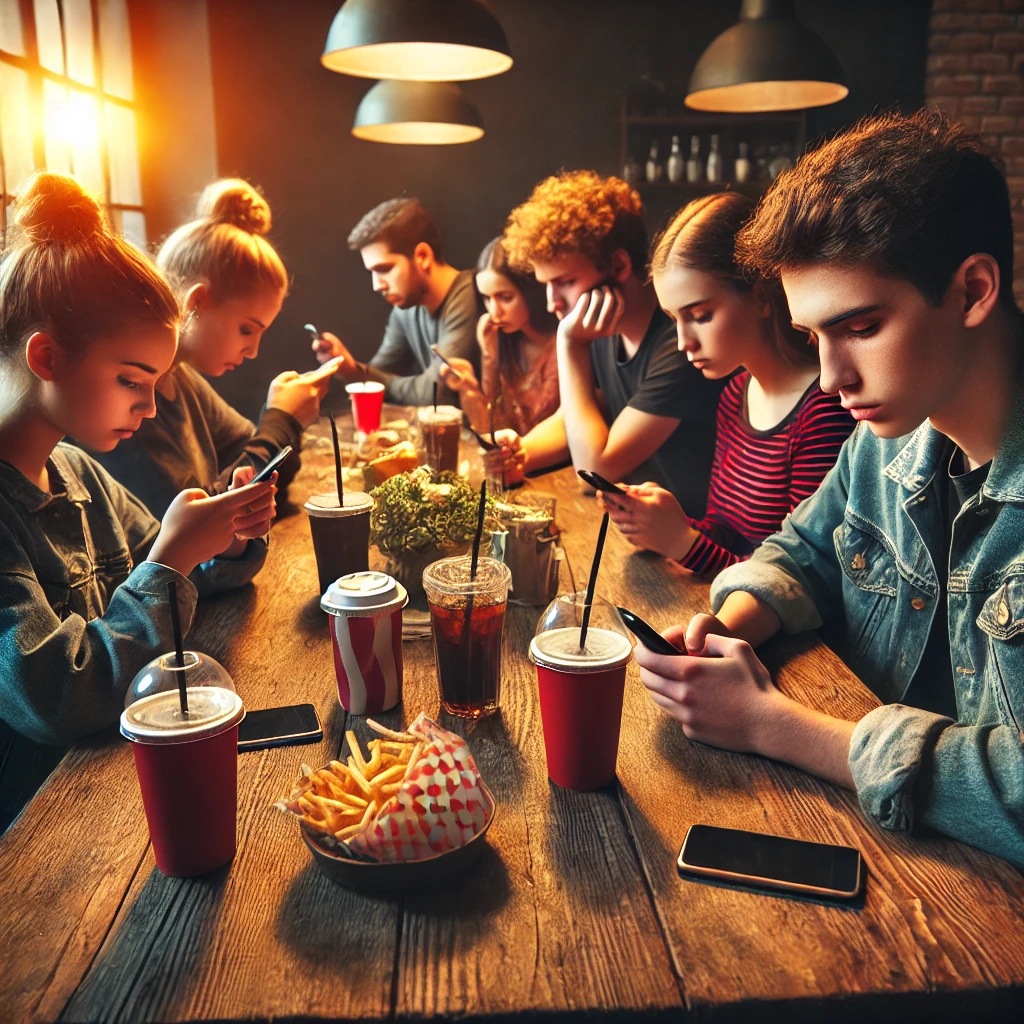
It was midnight, and sixteen-year-old Emily lay in bed, her face illuminated by the glow of her phone screen. She had promised herself she would go to sleep early, but scrolling through Instagram, TikTok, and Twitter had become an unbreakable habit. With each swipe, she encountered an avalanche of content: influencers sharing their perfect lives, news clips sparking outrage, and friends posting updates that made her question whether she was missing out. By the time she set her phone down, Emily felt exhausted, anxious, and overwhelmed—but she didn’t know why.
Social media has profoundly shaped how people think, behave, and interact with the world, particularly for younger generations. While platforms offer connection and information, they also fuel division, mental health struggles, and a distorted sense of reality. As Greg Lukianoff and Jonathan Haidt argue in The Coddling of the American Mind, the rise of social media has contributed to growing anxiety, emotional fragility, and a culture of outrage. Understanding how these platforms influence thought and behavior is essential to mitigating their negative effects.
The Amplification of Emotion and Outrage
Social media thrives on engagement, and nothing drives interaction more than strong emotions—especially outrage. Algorithms prioritize content that sparks reactions, whether through anger, shock, or extreme agreement. This phenomenon has led to:
- Hyper-Polarization – Exposure to content that reinforces existing beliefs while demonizing opposing viewpoints has deepened societal divides.
- Cancel Culture and Public Shaming – Individuals who make mistakes or express unpopular opinions often face disproportionate backlash, discouraging open discussion.
- Misinformation and Echo Chambers – False or misleading information spreads rapidly, with users primarily seeing content that aligns with their beliefs.
These factors contribute to an “us vs. them” mentality, a theme central to Lukianoff and Haidt’s argument about cultural fragility and intolerance for dissent.
The Mental Health Toll

The link between social media use and declining mental health, particularly in teenagers, is well-documented. Some of the key concerns include:
- Increased Anxiety and Depression – Studies have found a correlation between heavy social media use and rising levels of anxiety, depression, and suicidal thoughts among young people.
- Fear of Missing Out (FOMO) – Constant exposure to curated, idealized versions of others’ lives fosters feelings of inadequacy and exclusion.
- Sleep Disruptions – The addictive nature of social media leads to excessive screen time, disrupting sleep patterns and overall well-being.
- Diminished Attention Span – The rapid consumption of short-form content reduces the ability to focus on deeper, more meaningful discussions or tasks.
The Shaping of Identity and Self-Worth
For many young people, social media serves as a mirror reflecting their self-worth. Platforms reinforce a culture of validation through likes, shares, and comments, making personal identity increasingly dependent on digital approval. This can result in:
- Excessive Self-Comparison – Users measure their success, beauty, and happiness against unrealistic standards set by influencers and peers.
- Pressure to Conform – Fear of being ostracized discourages individual expression and independent thought.
- Loss of Real-Life Social Skills – Online interactions replace face-to-face communication, weakening essential interpersonal skills.
Strategies for Healthy Social Media Use

While social media is unlikely to disappear, individuals can take steps to use it more mindfully:
- Set Time Limits – Apps like Instagram and TikTok allow users to monitor and limit daily screen time.
- Curate Your Feed – Follow accounts that promote positive, balanced perspectives rather than those that fuel anxiety and division.
- Engage in Real-World Activities – Prioritize offline hobbies, face-to-face interactions, and outdoor activities.
- Think Before Reacting – Recognizing how algorithms manipulate emotions can help users avoid impulsive reactions to provocative content.
- Promote Digital Literacy – Encouraging critical thinking about online content helps combat misinformation and emotional manipulation.
Conclusion
Social media has transformed modern society, but its influence is not entirely positive. While these platforms offer opportunities for connection and learning, they also distort reality, fuel division, and impact mental health. By using social media more intentionally, individuals—especially young people—can reclaim control over their thoughts and behaviors rather than being controlled by algorithms.
This article is part of our series on The Coddling of the American Mind. Stay tuned for our next installment: The Dangers of Emotional Reasoning.
Brent is the Managing Partner of CatchMark Technologies and a seasoned technologist with over 25 years of experience in IT leadership, cybersecurity, and technical operations. He began his career serving in the U.S. Army, where he worked extensively with electronics—laying the foundation for his lifelong passion for technology and problem-solving. Brent holds a Certified Information Systems Security Professional (CISSP) certification and currently leads CatchMark’s Cybersecurity and Tech Support teams. Known for his strategic thinking and hands-on expertise, he excels in guiding secure, scalable solutions and driving innovation across complex technical environments.
Must See
-


Community
/ 2 hours agoFishing the White Lake Region: A Late May 2025 Update
As we approach the end of May, anglers in the White Lake area, encompassing...
By Kara Raeth -


Community
/ 5 hours agoWhitehall, Montague Bands Win $10K for Leadership Training
The Whitehall and Montague High School bands have received an exciting $10,000 grant from...
By Amy Yonkman -


History
/ 1 day agoWhite Lake History – Activities of the Chamber of Commerce
Article from the Past This week’s history feature is plain and simple—a direct article...
By Owen Raeth











